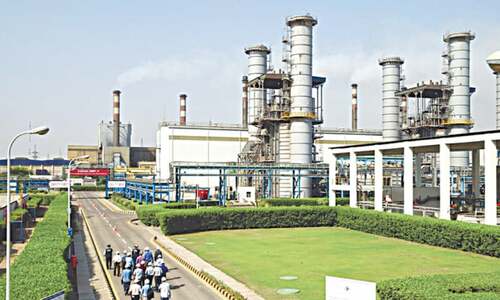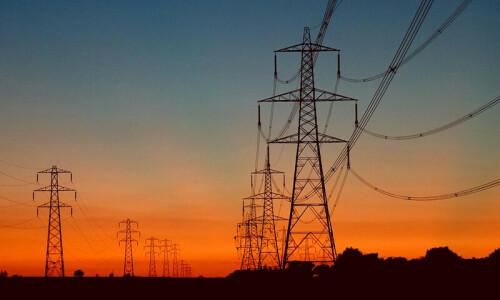ISLAMABAD: The Karachi-based K-Electric has sought approval to charge up to Rs18.6 per unit additional fuel cost from power consumers at an average monthly burden of about Rs2 per unit to mop up about Rs28bn additional funds and clear a backlog of about nine months (July 2023 to March 2024).
In a series of petitions filed before the National Electric Power Regulatory Authority (Nepra), the KE presented three different options for additional fuel cost recovery from consumers on a “provisional basis” to clear the backlog and avoid a sudden increase in burden on its consumers.
Nepra has called a public hearing on May 9 for the KE’s petition on provisional monthly fuel charges adjustments (FCA) for the period of July 2023 to March 2024. The KE explained that since its multi-year tariff (2024-30) was currently under regulator’s deliberation, it has filed FCAs based on three scenarios with the request for the approval of any one of the three scenarios and guide recovery mechanism for these nine months to facilitate timely recovery of costs and avoid further accumulation of adjustments to be recovered from customers.
Under the first scenario, the KE has proposed that the FCA be calculated as the difference between actual fuel cost and the reference monthly fuel cost as per the interim tariff currently in place. In this option, the KE sought increase in rates for seven months and reduction in rates for two months, with a net additional revenue of about Rs19bn. The cumulative net impact for nine months works out to be about Rs13 per unit or an average of Rs1.45 per unit per month.
Higher FCA won’t apply to ‘lifeline consumers’
In the second option, the KE demanded that it be allowed to charge consumers the difference between the actual and reference monthly fuel cost as per the tariff petition filed by the KE and currently under Nepra’s deliberation. In this case, the utility has also sought fuel cost increase for seven months and reduction for two months with the net accumulative additional fuel cost of Rs18.6 per unit at a monthly average of Rs2.06 per unit for nine months to raise about Rs28bn.
In the third scenario, the KE proposed that the difference between actual fuel costs versus annual weighted average fuel reference costs being considered as per the tariff petition filed by the KE and currently under Nepra’s deliberation. In this case, too, the utility sought additional fuel cost for seven months and reduction for two months. The net combined impact works out to be Rs16.9 per unit at a monthly average of about Rs1.90 per unit and entails a financial impact of about Rs24bn.
The consumers of ex-distribution companies (Discos) have already paid these additional fuel costs ranging between Rs3 and Rs7.5 per unit a month.
On approval, Nepra will also set the mechanism and schedule for recovery of increase in FCAs. The FCA is normally reviewed every month as per the tariff regime applicable across the country and is usually applicable to the consumer’s bills for one month only. However, the KE has a backlog given its delayed tariff petitions and regulatory approvals for monthly, quarterly and annual basis.
The higher FCA, on approval, would be applicable to all consumer categories except lifeline power consumers and protected domestic consumers using up to 300 units, and agricultural consumers and electric vehicle (EV) charging stations. The adjustment on account of monthly FCA is also applicable to the domestic consumers having Time of Use (ToU) meters irrespective of their consumption level.
Under the tariff mechanism, changes in fuel cost are passed on to consumers only on a monthly basis through automatic mechanism while quarterly tariff adjustments on account of variation in power purchase price, capacity charges, variable operation and maintenance costs, use of system charges and including impact of transmission and distribution losses are built in the base tariff by the federal government.
Published in Dawn, April 30th, 2024












































Dear visitor, the comments section is undergoing an overhaul and will return soon.